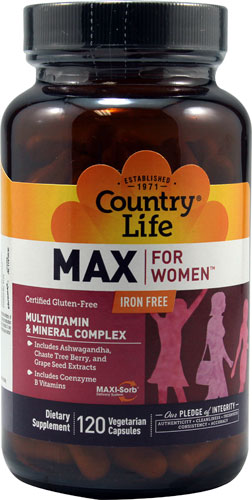[vc_row][vc_column][vc_column_text]We often hear the phrase holistic health in popular culture, but what exactly does it
mean? It could be defined as an approach to wellness that addresses the physical, mental, emotional, social and spiritual components of health. In practice,
holistic medicine draws from a wide range of disciplines, belief systems, and cultures to heal people, communities and even the environment.

What is holistic health?
According to Suzan Walter, MBA, co-founder and current president of the
American Holistic Health Association (AHHA), holistic health is an entire approach to life, in which people take personal responsibility, predicating their daily choices on what supports their overall well-being. In one study, holistic medicine?addressing biological, familial, psychological, societal, ethical and emotional dimensions?was seen as an
attitude, an emphasis on
preventive wellness techniques rather than “sick care.”
If you like this empowering, comprehensive approach to health, how can you start cultivating your
own well-being holistically
? In visualizing a pie shape with slices representing categories, you can independently address each major facet of your health, helping to ensure that the entire being?
you?is beautifully supported.
Understanding that the various dimensions of your health?your body, mind and emotions?are all connected can help you to incorporate positive, practical
self-care measures that fit your lifestyle. It can be as simple as addressing the physical realm with diet and exercise, the mental realm by actively caring for your brain, and the emotional realm by positively managing your feelings. The following actions work individually
and synergistically to benefit your overall well-being.
Holisitic health practices
Normalize healthy eating
It is difficult to overstate the impact of the foods you eat daily on your health. Recent statistics from the Centers for Disease Control and Prevention (CDC) confirm that heart disease is still the leading cause of death for Americans, and about 50% of related deaths?including diabetes and stroke, are the result of poor diets. Food affects our emotional state as well (learn how
Ultra processed Foods May Raise Depression Risk in Women).
In upgrading your diet, it’s better to make small, sustainable changes than huge shifts that are less likely to last. A smart tactic is to
add beautifully nourishing
plant-based foods, gradually crowding out less healthy choices. For instance:
- Learn to make high-quality, homemade soup. This ensures you always have a healthy anchor meal on hand, plus it is a wonderful way to use extra weekly produce. Start simply, maybe just adding veggies and beans or lentils to a prepared broth. You might go on to try this Roasted Tomato Soup, or this Vegan Lentil Soup with Potatoes. Additionally, check out 15 of the Best Cozy, Warming Soups to Savor This Season
- Make a weekly pot of brown rice or quinoa. Having them available enables quick stir fries, pilafs and entrées, like this gorgeous Loaded Quinoa Chili. You can also add them to soups, stews and salads, like this Strawberry Quinoa Salad With Mint Vinaigrette (see more ideas below).
- Cooked grains and seeds, like brown rice, millet, quinoa, teff and oats also make a filling, comforting breakfast heated with almond milk, raisins, nutmeg and cinnamon. Try, for example, Vegan Coconut Rice Pudding, or Orange-Cinnamon Rice Pudding. Add antioxidant power and exotic flavor with spicy-sweet Garam Masala
- Become a salad specialist. Along with leafy green variations, try entrée salads too, which you can rotate weekly, along with soups, stews, veggie sides and rice or quinoa. Let seasonal produce guide you, as well as the weather. On chilly days, for example, you might try Warm Kale Salad With Roasted Sweet Potatoes, Panzanella Salad With Honey-Dijon Vinaigrette, Warm Buckwheat, Beets & Hazelnut Salad, Fiesta Quinoa Salad with Crisped Spicy Corn or this sumptuous Roasted Butternut Squash Quinoa Salad.
- Love healthy beverages. Crowd out commercial sodas, sweetened drinks, and shelf-stable/pasteurized juices with pure water, fresh squeezed fruit and/or veggie juices, organic coconut water and hot or iced tea. Your tea pharmacopeia might include stomach-soothing ginger, refreshing peppermint, soothing chamomile, and elegant Earl Grey, as well as effective blends for sleep, stress and immune
Cultivate emotional stability
The way you manage your emotions in the face of life’s daily challenges is a huge factor in your overall well-being. Anger, stress, fear, frustration and despair can have negative effects?not just emotionally, but physically too. It’s also sensible to assess
emotional triggers you may have, which can cause ongoing problems if not properly addressed.
If you experience negative emotions frequently, or chronically, it can adversely impact your health in both the short and long-term. When emotional distress is expressed by physical symptoms, such as a rapidly beating heart, stomach pain/gut issues, tense muscles, etc., it is referred to as
somatization. Physical symptoms of emotional distress are called
somatic symptoms.
One simple but highly effective coping tactic in the face of difficulties is simply to
breathe. Infusing your system with fresh oxygen before speaking or acting can help you feel calmer and be clearer and more rational in your responses. In addition to breath work, other healthy adaptations to help counteract the pervasive symptoms of negative emotions include:
Learn more about
The Toxic Side of Stress & How to Cope and also
How to Practice Mindfulness: 5 Exercises to Bring Calm to Your Life.
Nourish your cognition
Creating a lifestyle that supports a healthy brain and minimizes cognitive decline is a vital slice of your “wellness pie.” How can you keep this incredibly vital organ sharp and highly functional over time? According to Harvard University, there is ample science to suggest that you can
minimize your risk of cognitive decline with daily wellness actions that are already essential to holistic health overall, including:
- Remaining physically active
- Getting enough sleep
- Refraining from tobacco in any form
- Maintaining healthy social connections
- Limiting alcohol to no more than one drink a day
- Enjoying a Mediterranean-style (mostly plant-based) diet
One research team, evaluating
components linked to cognitive decline cited nutrition as a major influence, along with age, genetic, socioeconomic and environmental factors. Another study looked at the relationship between
diet and cognitive functions, recommending both the
Dietary Approach to Stop Hypertension (DASH) and
Mediterranean-style diets to optimize brain health over time. Researchers noted that combining them both appears to offer the most protection against cognitive decline and Alzheimer’s disease.
To fill those virtually inevitable nutritional gaps, don’t forget your daily
multi-vitamin/mineral formula, which was shown in one recent study to support cognitive health over the years. Learn more about how a basic nutritional supplement can
help you stay sharp with age. Finally, unless you eat fatty fish like salmon daily, you might consider a high-quality
omega-3 EFA supplement, rich in EPA/DHA.
The exercise connection
Another crucial factor in healthy, graceful aging for body and mind is staying physically fit. Specifically, during the aging process, as one study found,
physical exercise positively addresses neuropsychiatric health and, in scientific terms, can “help delay the onset of neurodegenerative processes via neurotransmitter release, neurotrophic factor and neurogenesis, and cerebral blood flow alteration.”
Happily, light-to-moderate daily exercise goes a long way, especially when you are consistent.
Yoga is especially beneficial from the standpoint of holistic wellness; when it is practiced as originally intended, benefits go beyond the physical, supporting your mental and emotional well-being too.
One research team evaluating various
yoga-brain health studies found that they collectively demonstrate a positive effect of yoga practice on the structure and/or function of the hippocampus, amygdala, prefrontal cortex, cingulate cortex and brain networks including the default mode network (DMN). Their findings were regarded as “promising early evidence that behavioral interventions like yoga may hold promise to mitigate age-related and neurodegenerative decline.” Great motivation to get back on your mat!
Again, holistic health is a multi-faceted approach which we can only partially treat here. However, the components discussed are major pieces of your wellness pie, so they are well worth investing in. Here’s to your health![/vc_column_text][/vc_column][/vc_row][vc_row][vc_column][vc_text_separator title="Featured Products" border_width="2"][vc_row_inner equal_height="yes" content_placement="middle" gap="35"][vc_column_inner width="1/3"][vc_single_image image="173522" img_size="full" alignment="center" onclick="custom_link" img_link_target="_blank" css=".vc_custom_1710092636431{padding-right: 7% !important;padding-left: 7% !important;}" link="https://www.vitacost.com/amazing-flora-probiotic-13-strains"][/vc_column_inner][vc_column_inner width="1/3"][vc_single_image image="173520" img_size="full" alignment="center" onclick="custom_link" img_link_target="_blank" css=".vc_custom_1710092661955{padding-right: 7% !important;padding-left: 7% !important;}" link="https://www.vitacost.com/kal-womens-am-pm-multivitamin-60-tablets-each"][/vc_column_inner][vc_column_inner width="1/3"][vc_single_image image="173523" img_size="full" alignment="center" onclick="custom_link" img_link_target="_blank" css=".vc_custom_1710092677380{padding-right: 7% !important;padding-left: 7% !important;}" link="https://www.vitacost.com/sunwarrior-omega-3-vegan-dha-epa"][/vc_column_inner][/vc_row_inner][/vc_column][/vc_row]




